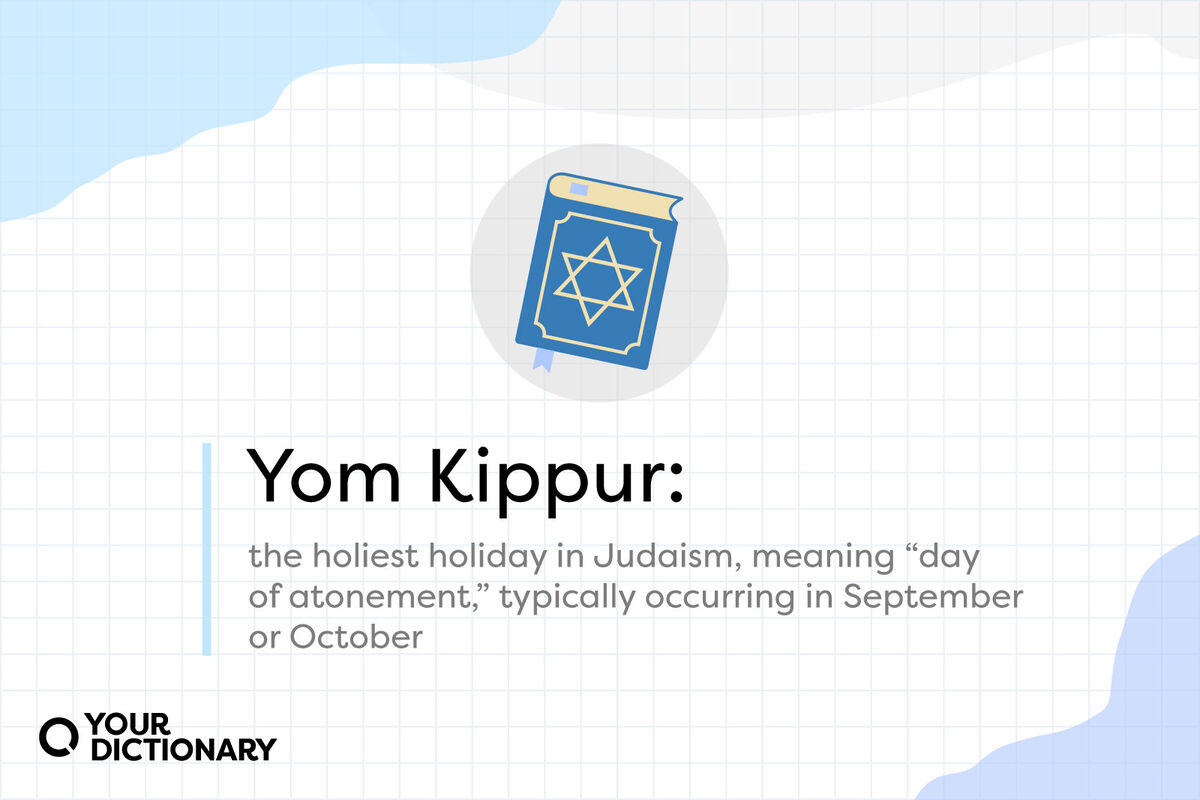
While most gentiles are more familiar with Hanukkah, Yom Kippur is ostensibly the most important holiday for Jews. Along with Rosh Hashanah, it is one of the main High Holy Days and occurs at the end of the 10 Days of Awe. Knowing how to properly greet someone during Yom Kippur not only shows that you care, but it can also help you avoid any potentially offensive or inappropriate remarks.
What Does Yom Kippur Mean?
Yom Kippur, pronounced “YAWM KIH-pour,” means “day of atonement.” It comes from the Hebrew words yom, meaning “day,” and kippur, meaning “atonement.”
Tradition dictates that, during the 10 Days of Awe, which starts with Rosh Hashanah, God judges whether all of the creatures on Earth will live or die over the next year. Those deemed righteous are inscribed in the book of life, while the wicked are condemned to death. Those in the gray area have until Yom Kippur to repent for their sins.
That’s admittedly pretty heavy, sobering stuff, and it makes Yom Kippur a decidedly somber holiday. As the holiest of days, Yom Kippur is a time for prayer, committing good deeds, and otherwise being a good person.
Yom Kippur Greetings in Hebrew and Yiddish
Yom Kippur is a quieter, more contemplative holiday, so it’s important that your greetings match the mood. Thankfully, you do have quite a few Hebrew and Yiddish greetings that show your Jewish loved ones that you care.
Gut Yontif
Gut yontif (pronounced “GOOT yawn-tiff”) is a good greeting for either Rosh Hashanah or Yom Kippur. In Yiddish, gut yontif means “good holiday.” Simply put, you’re wishing someone a good holiday.
G’mar Chatimah Tovah
G’mar chatima tova is a more traditional greeting that you can say before or during Yom Kippur. G’mar chatima tova (pronounced “guh-mar hah-TEE-mah toh-VAH”) means “a good final sealing,” a reference to getting their name sealed in the Book of Life.
Tzom Kal
Tzom kal (pronounced “tzohm kahl”) is a Hebrew phrase that literally translates to “easy fast.” You’re generally wishing someone an easy fast. That might seem like a strange greeting or request, but a fast is one of the main components of Yom Kippur. While it has spiritual and symbolic significance, fasting can still be a difficult process for anyone.
Yom Kippur Greetings in English
If you’re not sure what to say in Hebrew or Yiddish, it’s okay to give your Yom Kippur greetings in English. However, keep in mind that Yom Kippur is a solemn, reflective holiday. “Happy Yom Kippur” generally isn’t an appropriate greeting, though some in the Jewish community are rethinking this.
Wishing a Meaningful Yom Kippur
While Yom Kippur isn’t necessarily a happy holiday, it is absolutely a meaningful one, and wishing someone any variation of “I hope you have a meaningful Yom Kippur” or “I hope you have a blessed holiday” can still show that you care.
Wishing an Easy Fast
The fast during Yom Kippur is 25 hours long, lasting from sundown the night before Yom Kippur to nightfall the day of Yom Kippur. That’s a lot of time without food and drink. If you don’t remember tzom kal, you can go with the English equivalent and wish someone “an easy fast.”
Basic Facts About Yom Kippur
Along with knowing what to actually say on Yom Kippur, it’s a good idea to acquaint yourself with the customs and history of the holiday to show your Jewish loved ones that you care.
- Yom Kippur is the holiest of holidays in Judaism and is sometimes referred to as the “Sabbath of Sabbaths.”
- All adults, aside from the elderly, the sick, and women, are required to fast. That generally includes no food or drink, though some denominations may have restrictions on bathing, cosmetics, and wearing leather.
- Religious Jews wear white on Yom Kippur as a symbol of purity.
- Following the last Yom Kippur service, families return home to break their fast with a variety of foods, including noodle pudding, blintzes, and baked goods.